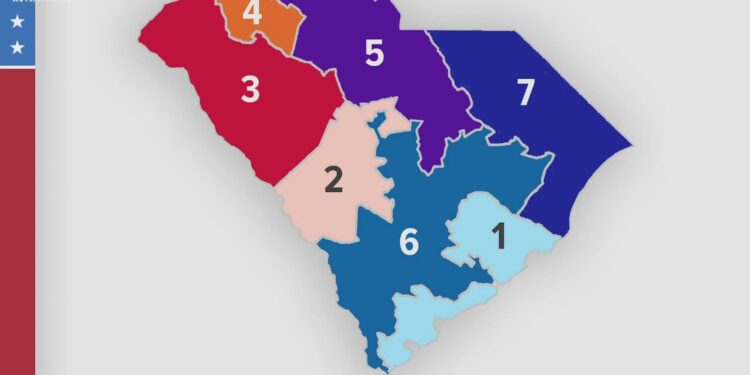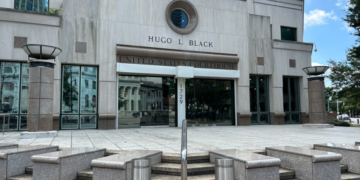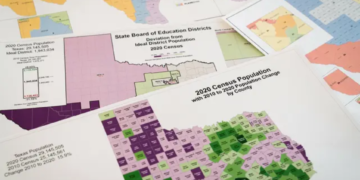Img source: WLTX19
May 23, 2024 Story by: Editor
In a recent decision, the Supreme Court has upheld South Carolina’s congressional map, which faced allegations of racial gerrymandering and dilution of Black voters’ influence. Despite a lower court’s prior ruling against the map, the Supreme Court’s decision, announced after months of anticipation, will not immediately impact the upcoming November elections.
Key Points:
- The Supreme Court voted 6-3 in favor of South Carolina in Alexander v. South Carolina State Conference of the NAACP, dismissing claims of racial gerrymandering that were brought against the state’s redrawn congressional map.
- Earlier, a district court had declared the map unconstitutional and ordered the redrawing of congressional District 1, currently represented by GOP Rep. Nancy Mace, citing racial gerrymandering concerns.
- Justice Samuel Alito, writing for the majority, criticized the district court’s decision as “clearly erroneous” and stated that the evidence it relied on was “seriously misguided.”
- Alito stressed that to prove racial gerrymandering, challengers must demonstrate that the district was drawn with the intent to minimize the voting power of minorities, which he claims was not sufficiently proven in this case.
- However, the court’s liberal justices dissented, with Justice Elena Kagan arguing that there was ample evidence of racial gerrymandering to support the lower court’s judgment. Source: Forbes
Surprising Fact:
- Despite the ongoing legal dispute, the original map, including the disputed district, was set to be used in the November election even before the Supreme Court’s ruling, as the high court took an extended time to reach a decision.
Potential Implications:
- Kagan expressed concerns that the ruling could set a higher bar for future racial gerrymandering lawsuits, making it more challenging for plaintiffs to prevail.
- The court’s decision places an additional burden on challengers to provide alternative maps or risk having their cases dismissed, according to Kagan.
Chief Critic:
- Kagan criticized the majority’s decision, arguing that it disregarded evidence and could incentivize states to use race for partisan purposes, perpetuating discriminatory practices.
Background:
The Supreme Court’s stance on voting rights has been contentious in recent years, with critics highlighting decisions that have weakened the Voting Rights Act’s protections. The South Carolina case follows a trend of rulings that have implications for voting rights and racial gerrymandering.

















